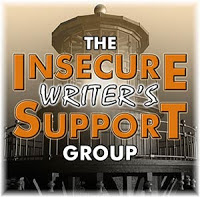So let’s see…five objects in my
writing space. I guess the five children don’t count. Unfortunately, they’re
always in my space. But that’s a different story. What would be considered useful
in my writing space that could help you in yours? I like my posts to be helpful
to my fellow writers.
I like quiet when I write. I know! That’s
funny coming from a mother of five. Maybe that’s why I like the quiet. I don’t
get enough of it in my house. But the only one I want talking in my writing
space is me. And yes! I do talk to myself. Or maybe I’m really talking to my
characters. Many times, I’m looking for the sense of the plot, the why of an
action or decision for my characters. I’m a concrete and logical person. I need
real reasons for things to happen in story. I think many readers come to story
to find a logical world. Because of this, the next thing happens. Many times in
real life, we can’t find—or understand—the reasons for actions and decisions. This
doesn’t mean that your story logic should be simplistic. On the contrary, the
deeper the story, the more likely the reader will stay with the character to
the very end, hoping for a happy [or logical] ending. Do you talk to your
characters?
Another thing I like in my writing
space is a fresh, hot pot of tea. I must have been English in my last life. Brewing
a fresh pot of tea relaxes me. It helps me think. Taking the time to step away
from the computer to pour another cup of hot tea allows me to consider my story
as a whole and decide what should happen next. I don’t drink coffee. I don’t
drink wine. What’s your mental go-to drink when writing?
A pad of paper and pen are essential
to my writing space. Most of my YA adventures deal with journeys through
forests or caves, down rivers or across mountains. I like to draw crude maps to
keep me focused on the literal journey while my characters are struggling on
the inside with personal problems. I also write key words or notes on the pad
of paper. How about you, do you draw maps for your story or plot lines?
I also keep my family camping
journals handy because they’re crammed with details of the national parks we’ve
visited with the five kids. Many times, one of my YA adventures begins at a
park we’ve visited. I peek inside my journals to find our family’s real life
adventures, looking for ideas to fictionalize for my characters. Do you keep journals of real life events to
fictionalize in story?
How about photographs of places and
people? They help me visualize a scene or a character in my stories. Then I begin
to ask questions: if a storm comes up in the mountains here at Rocky Mountain National
Park, where could I hide until it pasts? What about a fire in the desert? Who could
be living in that cave or who could I meet on the trail that would add more
tension to the story or assist my protagonist to finish the journey? Stories have
both internal and external problems, remember. How about you, do you use real
photos of places you’ve been to or do you search online to find locations to
set your scenes in?
So how do you find creativity
in your writing space? Please share any information here at Adventures in
Writing.
Thanks for visiting. Please follow Adventures in Writing if
you haven’t already and connect with me online. Leave your blog link in your
comment so I can be sure to do the same for you.
This post was written for the Insecure Writer’s SupportGroup. We post on the first Wednesday of every month.
To join us, or learn more about the group, click HERE.















